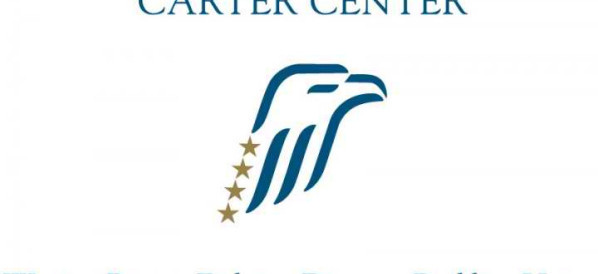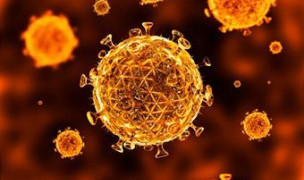 10 Terms
10 TermsHome > Terms > English (EN) > potassium mud
potassium mud
A class of muds that contain potassium ion (K+) dissolved in the water phase. Potassium muds are the most widely accepted water mud system for drilling water-sensitive shales, especially hard, brittle shales. K+ ions attach to clay surfaces and lend stability to shale exposed to drilling fluids by the bit. The ions also help hold the cuttings together, minimizing dispersion into finer particles. The presence of Na+ ions counteracts the benefits of K+ ions and should be minimized by using fresh water (not sea water) for make-up water. With time, Na+, Ca+2 and other ions accumulate from ion exchange with clays, making the mud less effective, but regular treatment to remove Ca+2 improves polymer function. Potassium chloride, KCl, is the most widely used potassium source. Others are potassium acetate, potassium carbonate, potassium lignite, potassium hydroxide and potassium salt of PHPA. Use of bentonite clay is restricted because of its strong affinity for K+. Instead, various polymers are used. XC polymer and PHPA are used for rheology. For fluid-loss control, mixtures of starch and polyanionic cellulose are often used. CM starch, HP starch, carboxymethylcellulose and sodium polyacrylate (SPA) are also used. PHPA is widely used for shale encapsulation. Potassium, lime and starch-like polymers have also been used as potassium mud systems. Although three API methods exist for determining the K+ ion concentration, the centrifuge method (for K+ >5000 mg/L) is the most accepted field method, and essential for daily monitoring of potassium in a mud. Regular additions of potassium salt maintain shale stability. K+ ion is rapidly consumed while drilling shallow, soft and highly dispersive (gumbo) shales, but maintaining sufficient K+ ion to stabilize gumbo can become expensive when drilling large holes. Researchers, notably Dr. Dennis O'Brien and Dr. Martin Chenevert (while at Exxon Production Research), evaluated different shales, their clay mineralogy and the concentration of K+ needed to stabilize them. Potassium muds above about 1 wt. % K+ ion usually fail the mysid shrimp (US EPA) bioassay test. Therefore, K-muds currently find low acceptance in offshore drilling in USA waters.
Reference:
O'Brien DE and Chenevert ME: "Stabilizing Sensitive Shales with Inhibited Potassium-Based Drilling Fluids," Journal of Petroleum Technology 25, no. 9 (September 1973): 1089-1100.
- Part of Speech: noun
- Synonym(s):
- Blossary:
- Industry/Domain: Oil & gas
- Category: Drilling
- Company: Schlumberger
- Product:
- Acronym-Abbreviation:
Other Languages:
Member comments
Terms in the News
Billy Morgan
Sports; Snowboarding
The British snowboarder Billy Morgan has landed the sport’s first ever 1800 quadruple cork. The rider, who represented Great Britain in the 2014 Winter Olympics in Sochi, was in Livigno, Italy, when he achieved the man-oeuvre. It involves flipping four times, while body also spins with five complete rotations on a sideways or downward-facing axis. The trick ...
Marzieh Afkham
Broadcasting & receiving; News
Marzieh Afkham, who is the country’s first foreign ministry spokeswoman, will head a mission in east Asia, the state news agency reported. It is not clear to which country she will be posted as her appointment has yet to be announced officially. Afkham will only be the second female ambassador Iran has had. Under the last shah’s rule, Mehrangiz Dolatshahi, a ...
Weekly Packet
Language; Online services; Slang; Internet
Weekly Packet or "Paquete Semanal" as it is known in Cuba is a term used by Cubans to describe the information that is gathered from the internet outside of Cuba and saved onto hard drives to be transported into Cuba itself. Weekly Packets are then sold to Cuban's without internet access, allowing them to obtain information just days - and sometimes hours - after it ...
Asian Infrastructure Investment Bank (AIIB)
Banking; Investment banking
The Asian Infrastructure Investment Bank (AIIB) is an international financial institution established to address the need in Asia for infrastructure development. According to the Asian Development Bank, Asia needs $800 billion each year for roads, ports, power plants or other infrastructure projects before 2020. Originally proposed by China in 2013, a signing ...
Spartan
Online services; Internet
Spartan is the codename given to the new Microsoft Windows 10 browser that will replace Microsoft Windows Internet Explorer. The new browser will be built from the ground up and disregard any code from the IE platform. It has a new rendering engine that is built to be compatible with how the web is written today. The name Spartan is named after the ...
Featured Terms
Carter Center
The Carter Center is a nongovernmental, not-for-profit organization founded by former U.S. President Jimmy Carter and his wife Rosalynn Carter. In ...
Contributor
Featured blossaries
Browers Terms By Category
- Rice science(2869)
- Genetic engineering(2618)
- General agriculture(2596)
- Agricultural programs & laws(1482)
- Animal feed(538)
- Dairy science(179)
Agriculture(10727) Terms
- Prevention & protection(6450)
- Fire fighting(286)
Fire safety(6736) Terms
- Journalism(537)
- Newspaper(79)
- Investigative journalism(44)
News service(660) Terms
- Automobile(10466)
- Motorcycles(899)
- Automotive paint(373)
- Tires(268)
- Vehicle equipment(180)
- Auto parts(166)
Automotive(12576) Terms
- Cultural anthropology(1621)
- Physical anthropology(599)
- Mythology(231)
- Applied anthropology(11)
- Archaeology(6)
- Ethnology(2)





